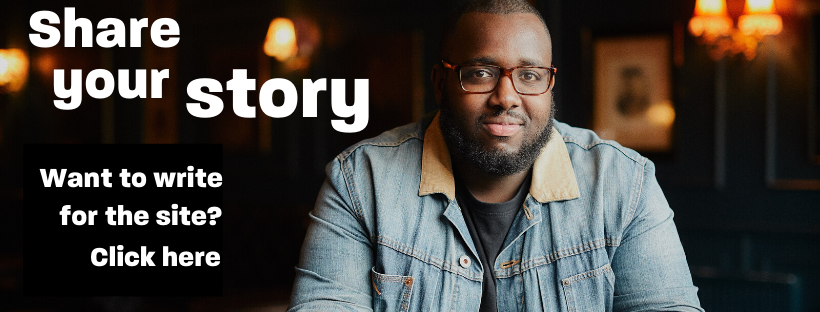

It’s what you say, not how you say it
Colin Mitchell sat down at the event he organised, feeling inadequate about his speech. But then someone took to the stage and proved that stammering doesn't make you a bad public speaker...
After weeks of planning, the night was upon me. I had arranged an evening lecture, by a specialist in his field, for approximately 80 of my clients. It should be fine. After all, I didn’t have to say anything this time. No public speaking, so no opportunity to feel awkward and embarrassed about speaking to an audience.
I reflected and thought about the last client evening, when I was tasked with giving the introduction. It should’ve been relatively easy but as can happen for no apparent reason, my speech just wasn’t flowing on the night and I stumbled and stammered my way through it. I sat down afterwards red-faced, flustered, and wishing the ground would open up and swallow me.
Anyway, back to the moment. I didn’t need to be thinking about that now.
Clients were arriving and I was managing speaking to them on their own. A colleague was doing the audience introduction this time, so I could sit back and enjoy the evening. The room was bigger than last time but was filling up nicely. There were refreshments available, the mood was buoyant and I sensed it would be a good evening.
Why can't I be like that? I thought. Why did I have to be the one to struggle with speech?
My colleague stepped forward and stood before the room. Effortlessly, she did her bit; she was welcoming, funny, relaxed and smiling — all the things that make a speaker engaging. Why can’t I be like that? I thought. Why did I have to be the one to struggle with speech? It’s a mixed emotional bag — I was pleased that my colleague was doing well, pleased for the clients, but just a little bit frustrated too.
Naturally, in the arranging of the evening, I had kept telephone conversations to the bare minimum. It’s amazing what can be arranged by email. I know we are often told how poor emails and text messages are as a means of communication, but whoever said that clearly hasn’t had my experiences: having speech utterly paralysed on the phone and struggling even with the opening ”Hello”; the anonymous shame of having someone hang up, thinking there was no one there. Then what do you do? Ring straight back and risk it happening again? Ring back and try to think of an explanation as to why the first call was silent? Ring back and apologise for having a stammer and making the conversation awkward? Or just not bother ringing back and find an email address instead?
It doesn’t matter, I told myself. I can enjoy the fruits of my labour arranging tonight without worrying about taking centre stage and speaking. I was rather proud of myself in my speaker selection too. Although I’d never heard him speak before, I had heard great reports and as well as that, he was very accomplished in his area of interest. Here he comes now, I observed to myself with a hint of a warm glow. He looks very smiley and cheerful. He looks pleased to be here. All signs pointing towards a very promising start.
His stammering didn’t seem to induce the speaking-related anxiety that grips me and makes my speech worse. He was, in all honesty, a very good speaker.
The audience were quiet. My colleague gave the speaker a welcoming handshake, then smiled over towards me. This felt good.
Over the next five minutes, as the speaker started, thoughts entering my head included:
Is this really happening?
No one mentioned this before.
He seems OK.
The audience seem OK.
What’s going on?
The speaker had a stammer.
Not mild, not severe. Perhaps somewhere in the middle (is there a grading system? I don’t know). But he seemed to have a similar frequency of difficult words as I do. This was uncanny — no one had told me about this.
I looked at him. He just continued talking. If he stumbled on a word he just kept going. He also didn’t appear to be red-faced, flushed or embarrassed. Most impressively for me, his stammer didn’t worsen as he struggled. His stammering didn’t seem to induce the speaking-related anxiety that grips me and makes my speech worse. He was, in all honesty, a very good speaker.
I looked at the audience. Everyone appeared engaged and listening. No one seemed to be giving a second thought to the rhythm of his speech.

Question time. He had lots of questions to answer, which he did with a smile, a joke and a stammer. This was, in my eyes, a masterclass.
Over the refreshments afterwards, I tried as best I could to casually ask some of the clients I knew well what they thought of the speaker and the fact he struggled with some words. The feedback was much the same: he was a great speaker, he knew his subject, and he spoke with passion and humour about the topic. A common theme was “It’s what he said that counts, not how he said it.”
I try very hard to remember that.
If you would like to write something for the site, see our Share your story page.


































